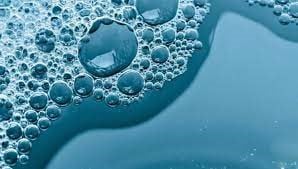The Future of Defoamers: Innovations and Trends in Foam Control Solutions
The Future of Defoamers: Innovations and Trends in Foam Control Solutions
Blog Article
The Function of Defoamers in Enhancing Product Top Quality and Efficiency
In numerous manufacturing procedures, the existence of foam can substantially impede product high quality and operational performance. Defoamers offer as vital additives that alleviate this problem, making sure smoother production process while improving the visual and useful qualities of the end products (defoamers). Their application spans a wide variety of industries, from food and drink to pharmaceuticals, where consistency and reliability are critical. Nevertheless, the selection of the proper defoamer can be crucial to achieving ideal results, raising crucial questions about formulation compatibility and performance metrics that merit further exploration.
Recognizing Defoamers
Comprehending the role of defoamers is essential for keeping item high quality across numerous industries. Defoamers are chemical additives made to avoid the formation and minimize of foam in fluid systems, which can negatively affect procedures such as mixing, loading, and surface stress. Foaming can result in inadequacies, product problems, and compromised aesthetic allure, making defoamers a crucial part in manufacturing procedures.
In industrial applications, defoamers help to improve item consistency and security. In the paint and finishes market, foam can interfere with the application procedure and the final coating. In food and beverage production, extreme foam can impede bottling and product packaging performance. The effective use defoamers not only ensures smoother production procedures yet additionally contributes to premium item performance.
Furthermore, the option and formulation of a defoamer should straighten with details application needs, such as compatibility with various other active ingredients, effectiveness under differing temperature level and pH conditions, and potential governing restraints. Inevitably, comprehending defoamers' functions and their value in different solutions is vital for enhancing manufacturing and guaranteeing the finest quality final product.
Kinds of Defoamers
Defoamers can be categorized right into a number of types based on their make-up and system of action. The main kinds include silicone-based, non-silicone natural, and not natural defoamers.
Silicone-based defoamers are among the most reliable, primarily because of their ability to spread out swiftly on the liquid surface area and interfere with foam formation. Their special chemical framework permits premium security, making them appropriate for high-temperature applications and environments with varying pH degrees.
Non-silicone natural defoamers, typically made up of all-natural oils or fatty acids, are valued for their biodegradability and lower toxicity. These are normally utilized in food and drink applications where safety and environmental impact are extremely important.
Not natural defoamers, which consist of substances like talc or calcium carbonate, act by boosting the thickness of the fluid, therefore lowering foam stability. They are commonly utilized in industrial processes where compatibility with other products is not a concern.
Each sort of defoamer has distinct benefits and limitations, permitting for tailored remedies relying on the particular lathering problems come across in various applications. Understanding these differences is essential for optimizing efficiency and achieving preferred item high quality.
Applications Across Industries
Many sectors utilize defoamers to enhance product high quality and functional efficiency. In the food and drink field, defoamers are critical in processes such as brewing and milk manufacturing to stop foam formation, which can result in ineffectiveness and product disparity. By regulating foam, producers can make certain better yield and an extra consistent item.
In the pharmaceutical industry, defoamers play a vital role in the solution of fluid drugs, where excessive foam can impede mixing and accurate application. Their use assists preserve the stability of the formulations and facilitates smoother production processes.
The paint and layers market likewise depends on defoamers to improve the performance of products throughout application. By decreasing foam, these ingredients guarantee a smoother finish and improve the aesthetic top qualities of the final product.

Benefits of Using Defoamers
While the application of defoamers varies throughout markets, their advantages continually boost item top quality and procedure performance. One substantial benefit is the reduction of foam formation during manufacturing processes, which can or else cause production hold-ups and disparities in item quality. By reducing foam, defoamers enable a smoother circulation of products, facilitating a lot more effective operations and reducing the likelihood of tools breakdowns.
Additionally, the usage of defoamers can enhance the appearance and texture of final items. In markets such as coverings, paints, and food handling, extreme foam can compromise the aesthetic looks and total top quality, while the ideal defoamer application makes sure an uniform finish and preferable characteristics. In addition, defoamers can add to cost financial savings by decreasing waste throughout manufacturing and optimizing the use of raw products (defoamers).

Selecting the Right Defoamer
Selecting the appropriate defoamer is important for enhancing production processes and making sure product top quality. The option of defoamer influences not just the efficiency of foam control but additionally the total performance attributes of the end product. Aspects to think about include the kind of application, the chemistry of the formula, and the environmental conditions under which the product will be made use of.
Various markets might require details defoamer types, such as silicone-based, natural, or polymeric defoamers. Recognizing the compatibility of the defoamer with the main components is important to prevent adverse responses that could endanger item stability. Additionally, the defoamer's efficiency in different temperature levels and pH levels need to be assessed to make sure constant performance.
Evaluating the defoamer in small-scale applications can provide valuable insights right into its performance and viability. Consideration of governing conformity, specifically in food, drugs, and cosmetics, is vital in selecting a defoamer. Ultimately, a detailed evaluation of these variables will certainly bring about the option of a defoamer that not just regulates foam successfully but likewise boosts the top quality and performance of the end my site product.
Verdict

In final thought, defoamers are vital additives that substantially boost product quality and efficiency throughout various sectors. The calculated selection and application of defoamers lead to set you back financial savings, enhanced resource use, and boosted customer contentment.
Lathering can lead to inefficiencies, item flaws, and jeopardized aesthetic charm, making defoamers a critical part in manufacturing procedures.

Report this page